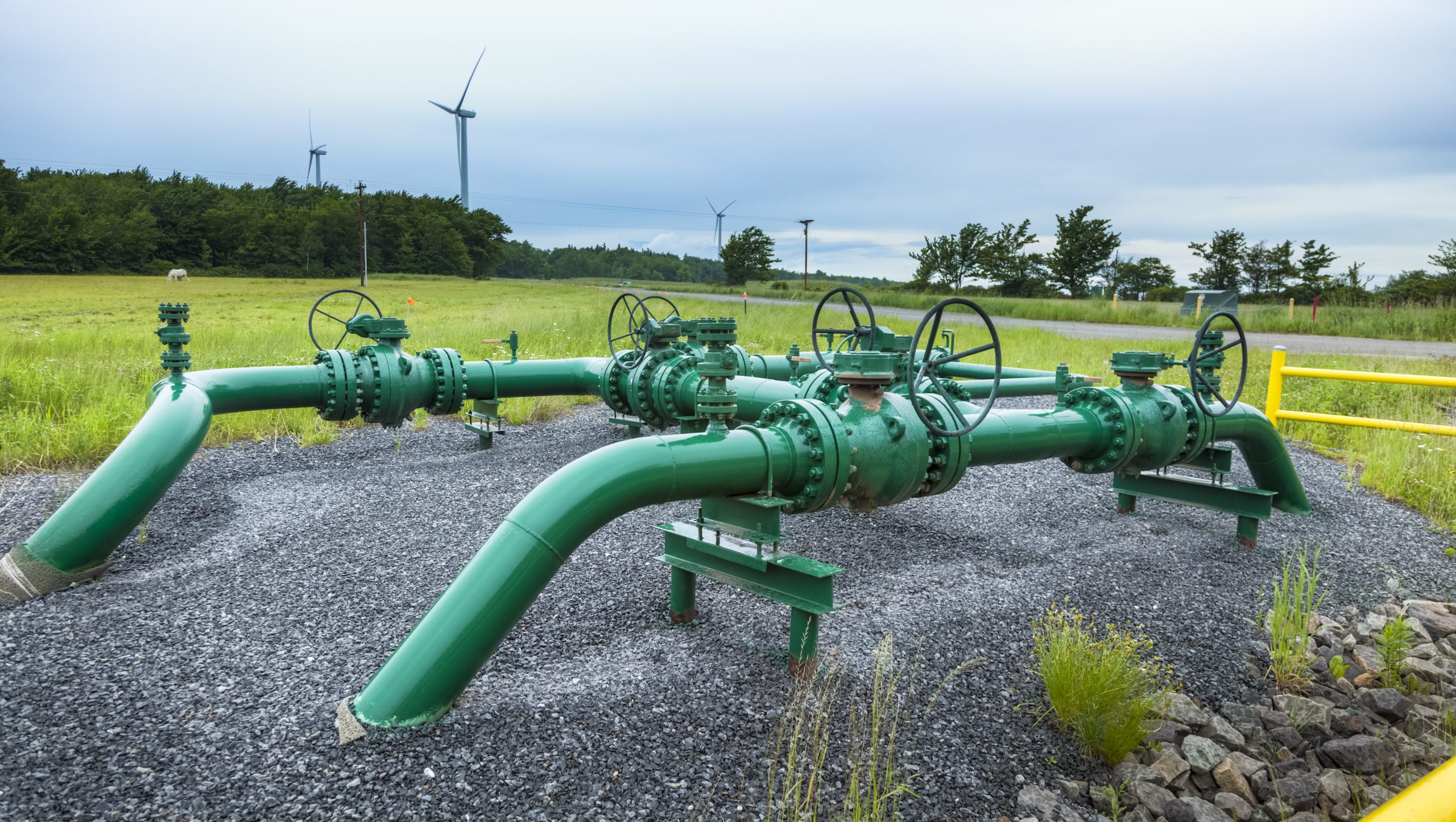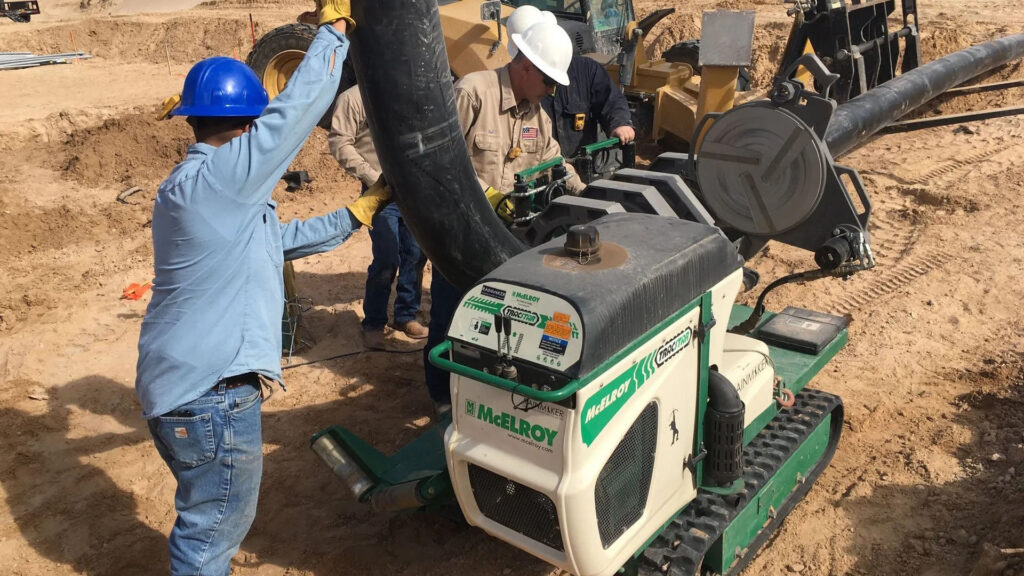How Customer Feedback Can Help You Choose Pipeline Construction Services
Wiki Article
The Vital Guide to Comprehending Pipeline Construction Providers and Their Value
Pipeline Construction services are fundamental to the transportation of important resources such as oil, gas, and water. These solutions entail careful preparation and implementation, adhering to stringent safety and security and ecological standards. As the sector adapts to modern obstacles, recognizing its implications and parts ends up being progressively vital. What variables add to the growing value of these services in today's economy? The following areas will explore these essential elements.Summary of Pipeline Construction Solutions
Pipeline Construction solutions include an array of activities essential for the installment and maintenance of pipes utilized to move different substances, consisting of water, gas, and oil. These services are critical for ensuring the reliable and secure movement of sources from one location to an additional. The process normally begins with detailed planning and design, which takes right into account governing needs, ecological factors to consider, and logistical obstacles.When planning is full, excavation and grading of the land are carried out to prepare the site for Pipeline setup. This is adhered to by the real laying of the pipelines, which entails welding or joining sections together to produce a continuous flow course. After installment, extensive screening is executed to guarantee stability and safety and security. Upkeep solutions are additionally offered to resolve any kind of issues that may occur gradually. In general, Pipeline Construction services play an essential duty in sustaining framework for energy and water circulation.
Secret Parts of Pipeline Construction
An effective Pipeline Construction job depends on several essential components that guarantee the effective and safe setup of the Pipeline system. Extensive website analyses are essential, as they identify the geographical and environmental elements that may affect Construction. Next off, the option of ideal products, such as installations and pipes, is necessary for securing sturdiness and compatibility with the moved compounds.Furthermore, advanced Construction methods, consisting of trenchless technology and directional exploration, boost efficiency and minimize ecological effect. Reliable job management is an additional essential element, collaborating labor, tools, and timelines to satisfy project goals.
Additionally, interaction among stakeholders, including designers, professionals, and neighborhood authorities, assurances alignment on task specs and needs. Finally, thorough quality assurance measures throughout the Construction procedure ensure conformity with sector standards and make the most of the Pipeline's operational lifespan. Jointly, these parts create the foundation of an effective Pipeline Construction task.
Security Requirements and Regulations in Pipeline Construction

Regulative bodies, such as the Occupational Safety And Security and Health Administration (OSHA) and the Pipeline and Hazardous Products Safety Administration (PHMSA), stated particular demands that regulate Construction techniques. These include protocols for equipment use, worker training, and emergency reaction treatments. By applying these criteria, Construction companies not only protect their employees but also secure public trust. Ultimately, rigorous safety procedures add to the long-lasting success of Pipeline jobs, ensuring they satisfy both operational and environmental assumptions.
Environmental Considerations in Pipeline Projects

Ecological considerations are essential to the preparation and implementation of Pipeline tasks. These tasks should analyze possible influence on ecosystems, water sources, and neighborhood wildlife. Carrying out detailed ecological impact assessments (EIAs) is crucial, allowing stakeholders to identify and alleviate risks prior to Construction begins.
Protecting sensitive locations, such as marshes and habitats, frequently needs carrying out certain layout attributes or alternate routing to reduce disturbance. In addition, Pipeline operators are tasked with creating methods for preventing spills and leakages, which can have damaging impacts on the setting.
Involvement with local communities is essential, as public problems can result in job alterations that improve environmental management. Conformity with policies established by environmental firms assures that jobs satisfy sustainability criteria, fostering a balance between framework requirements and eco-friendly conservation. Eventually, addressing environmental considerations not only safeguards nature yet also advertises neighborhood trust fund and job viability.
The Duty of Modern Technology in Pipeline Construction
Modern technology plays an important duty in contemporary Pipeline Construction, enhancing efficiency and accuracy. Advanced surveying techniques enable for precise preparation and execution, lessening ecological impact and job delays. Additionally, the combination of automation and robotics streamlines operations, decreasing labor costs and improving safety on Construction sites.Advanced Checking Techniques
Advanced checking methods play a necessary duty in the effective execution of Pipeline Construction projects. These approaches leverage advanced innovation to ensure exact mapping and evaluation of the terrain where pipelines will certainly be installed. Methods such as Geographic Information Equipment (GIS), LiDAR (Light Discovery and Ranging), and 3D modeling allow engineers to evaluate the landscape and imagine, recognizing possible barriers and ecological worries. By making use of these innovative tools, groups can enhance precision in placing and alignment, significantly lowering the risk of errors during Construction. Additionally, real-time information collection enables instant modifications and educated decision-making throughout the project lifecycle. Eventually, these surveying advancements add to improved effectiveness, security, and sustainability in Pipeline Construction efforts.Automation and Robotics

Economic Effect of Pipeline Facilities
Pipeline infrastructure plays a crucial role in shaping regional economic climates and promoting trade. By giving a trustworthy methods of delivering oil, gas, and various other commodities, pipes decrease transportation costs additional info and enhance supply chain performance. This framework draws in financial investment, boosts work creation, and promotes economic development in bordering areas.The Construction and upkeep of pipelines add significantly to regional economies, producing various employment opportunities in different fields, from engineering to labor. The increase of work frequently results in raised spending in regional businesses, further reinforcing financial activity.
Furthermore, pipes enhance energy security by making sure a stable supply of sources, which is vital for commercial procedures and residential requirements. As areas become adjoined through Pipeline networks, they obtain access to more comprehensive markets, increasing competitiveness and economic strength. The financial influence of Pipeline framework is complex, influencing both instant regional economic situations and more comprehensive regional growth.
Future Trends in Pipeline Construction Services
The future of Pipeline Construction solutions is progressing in action to technological developments, regulative adjustments, and expanding environmental factors to consider. Developments such as drones and robotics are streamlining inspection and maintenance processes, improving safety and efficiency. Automation is positioned to decrease labor expenses and enhance accuracy in Construction procedures. Additionally, the enhancing focus on sustainability is prompting business to adopt eco-friendly materials and practices, lining up with global initiatives to lower carbon footprints.Regulatory structures are also adjusting to attend to ecological effects, promoting higher more transparency and liability in Pipeline tasks. The integration of clever innovations, consisting of real-time monitoring systems, is anticipated to enhance the reliability and efficiency of Pipeline networks. As energy needs change towards sustainable resources, Pipeline Construction services will likely see a surge in jobs connected to biofuels and hydrogen transport. In general, these fads show a transformative duration for the Pipeline Construction market, focused on technology and sustainability.
Regularly Asked Questions
What Kinds of Pipelines Are Typically Built?
Various types of pipelines are commonly constructed, consisting of oil, gas, sewage, and water pipes - Pipeline Construction Services. Each serves distinctive functions, facilitating the transport of vital resources across areas while adhering to security and ecological regulationsExactly how Lengthy Does a Normal Pipeline Job Take?
The period of a regular Pipeline job varies significantly, frequently ranging from several months to a couple of years. Factors influencing this timeline consist of task intricacy, governing approvals, and ecological factors to consider that need to be resolved.Who Controls Pipeline Construction Companies?
Pipeline Construction firms are regulated by numerous federal, state, and regional firms, including the Pipeline and Hazardous Materials Safety Management (PHMSA) and state utility payments, ensuring conformity with security and ecological criteria throughout the Construction process.What Are Typical Products Made Use Of in Pipeline Construction?
Typical materials utilized in Pipeline Construction include steel, pvc, and polyethylene. Each product offers unique benefits such as resistance, flexibility, and durability to deterioration, making them appropriate for numerous applications in carrying fluids and gases.
Just How Are Pipeline Construction Expenses Estimated?
Pipeline Construction costs are estimated by analyzing aspects such as product costs, labor prices, project complexity, environmental factors to consider, and regulatory requirements (Pipeline Construction Services). Exact expense estimation warranties effective budgeting and project planning throughout the Construction processPipeline Construction solutions incorporate an array of activities important for the installment and maintenance of pipes made use of to deliver numerous substances, consisting of oil, water, and gas. An effective Pipeline Construction task depends on several key elements that ensure the secure and effective setup of the Pipeline system. Advanced evaluating methods play an important role in the successful implementation of Pipeline Construction tasks. Different types of pipelines are commonly constructed, including oil, sewage, gas, and water pipes. Pipeline Construction prices are estimated by analyzing factors such as product expenditures, labor rates, task complexity, ecological factors to consider, and regulatory demands.
Report this wiki page